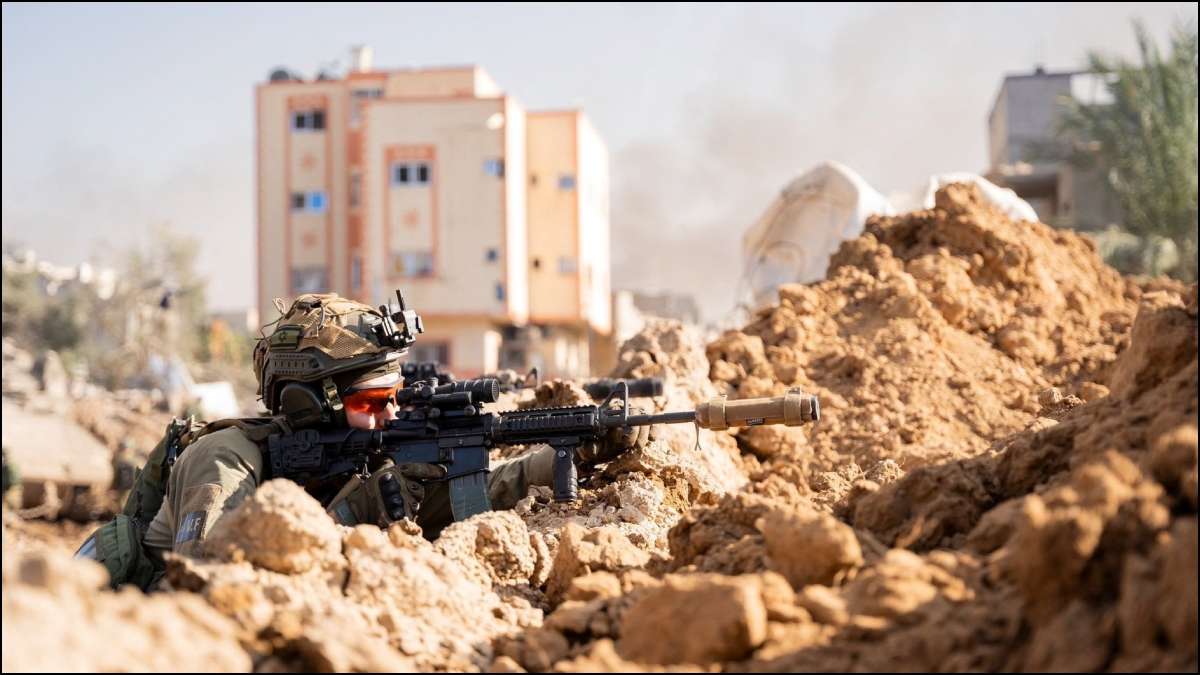
[ad_1]

As Israel intensified its offensive against Hamas in the Gaza Strip, the World Health Organisation (WHO) on Thursday said that there were no functioning hospitals left in the northern part of the besieged territory due to lack of fuel, staff and supplies. A total of only nine out of 36 facilities are functioning in the entire Gaza, the health body said.
This came after Gaza’s Ah-Ahli hospital stopped functioning after Israeli troops attacked the facility and reportedly arrested doctors, medical staff and patients. The same hospital was the site of a deadly explosion on October 18 that killed hundreds of people.
“WHO and UN partners undertook another high-risk joint mission today to Al-Ahli Arab and Al-Shifa hospitals in northern Gaza. Our teams delivered medicines, IV fluids and supplies for surgery, treating the wounded, and supporting women giving birth,” said WHO Director-General Tedros Adhanom Ghebreyesus on X.
He further said, “Until two days ago, Al-Ahli was northern Gaza’s last hospital functioning where injured people could undergo surgery. But our team learned today that its operating theatres are no long functioning due to the depletion, or complete absence, of specialists, power, fuel, water, food and medical supplies.”
The WHO further said that around 10 health workers continue to provide basic first aid, pain management and wound care, with 80 injured patients, including older people and small children sheltering in a church within the hospital grounds and its orthopedic section. Ghebreyesus also warned that all patients will die “slowly and painfully” without medicines and other essential needs.
The bodies of victims from recent Israeli attacks were lined up in the hospital’s courtyard because they could not be given safe and dignified burials, said Richard Peeperkorn, WHO representative in Gaza. Some patients at Al-Ahli had been waiting for surgeries for weeks or if they had been operated on, they faced the risk of a post-operation infection due to lack of antibiotics and other drugs, he added.
Over 570,000 people starving in Gaza due to war: UN
Meanwhile, a UN report on Thursday found that more than half a million people in Gaza are “starving” because of insufficient delivery of food since the outbreak of the conflict over ten weeks ago. “It is a situation where pretty much everybody in Gaza is hungry,” said World Food Programme chief economist Arif Husain.
He further warned that if the war between Israel and Hamas continues at the same levels and food deliveries are not restored the population could face “a full-fledged famine within the next six months”. The WHO also warned that the lethal combination of hunger and disease is leading to more deaths in Gaza.
“An unprecedented 93% of the population in Gaza is facing crisis levels of hunger, with insufficient food and high levels of malnutrition. At least 1 in 4 households is facing “catastrophic conditions”: experiencing an extreme lack of food and starvation and having resorted to selling off their possessions and other extreme measures to afford a simple meal. Starvation, destitution and death are evident,” said the WHO.
Over 100,000 cases of diarrhoea, over 150,000 cases of upper respiratory infections and numerous cases of meningitis, skin rashes, scabies, lice and chickenpox have also been reported. “In Gaza today, on average, there is only one shower for every 4500 people and one toilet for every 220. Clean water remains scarce, and there are rising levels of outdoor defecation,” the UN health body warned.
Truce talks
While the foes engaged in some intense moments with Israeli bombardment and Hamas firing rockets toward Tel Aviv, they are also engaged in serious talks for a fresh truce. Hamas said that Palestinian factions had taken a united position that there should be “no talk about prisoners or exchange deals, except after a full cessation of (Israeli) aggression”.
“These are very serious discussions and negotiations, and we hope that they lead somewhere,” White House spokesperson John Kirby told reporters aboard Air Force One on Wednesday. Israeli Foreign Minister Eli Cohen also confirmed negotiations for a hostage release.
Meanwhile, the UN Security Council is due to vote on Thursday on a resolution to boost aid after a delay at the request of the US. The US has been struggling to change the text’s references to a cessation of hostilities in the Israel-Hamas war, but the key sticking point is the inspection of aid trucks entering Gaza to ensure they are only carrying humanitarian goods.
“There are still serious and widespread concerns that this resolution as drafted could slow down the delivery of humanitarian aid by directing the UN to create an unworkable monitoring mechanism. We must ensure any resolution helps and doesn’t hurt the situation on the ground,” said Nathan Evans, the spokesman for the US Mission to the UN.
(with inputs from Reuters, AP)
ALSO READ | ‘Whatever efforts are needed towards peace, we will certainly do so’: PM Modi on Israel-Hamas war
[ad_2]
Source link